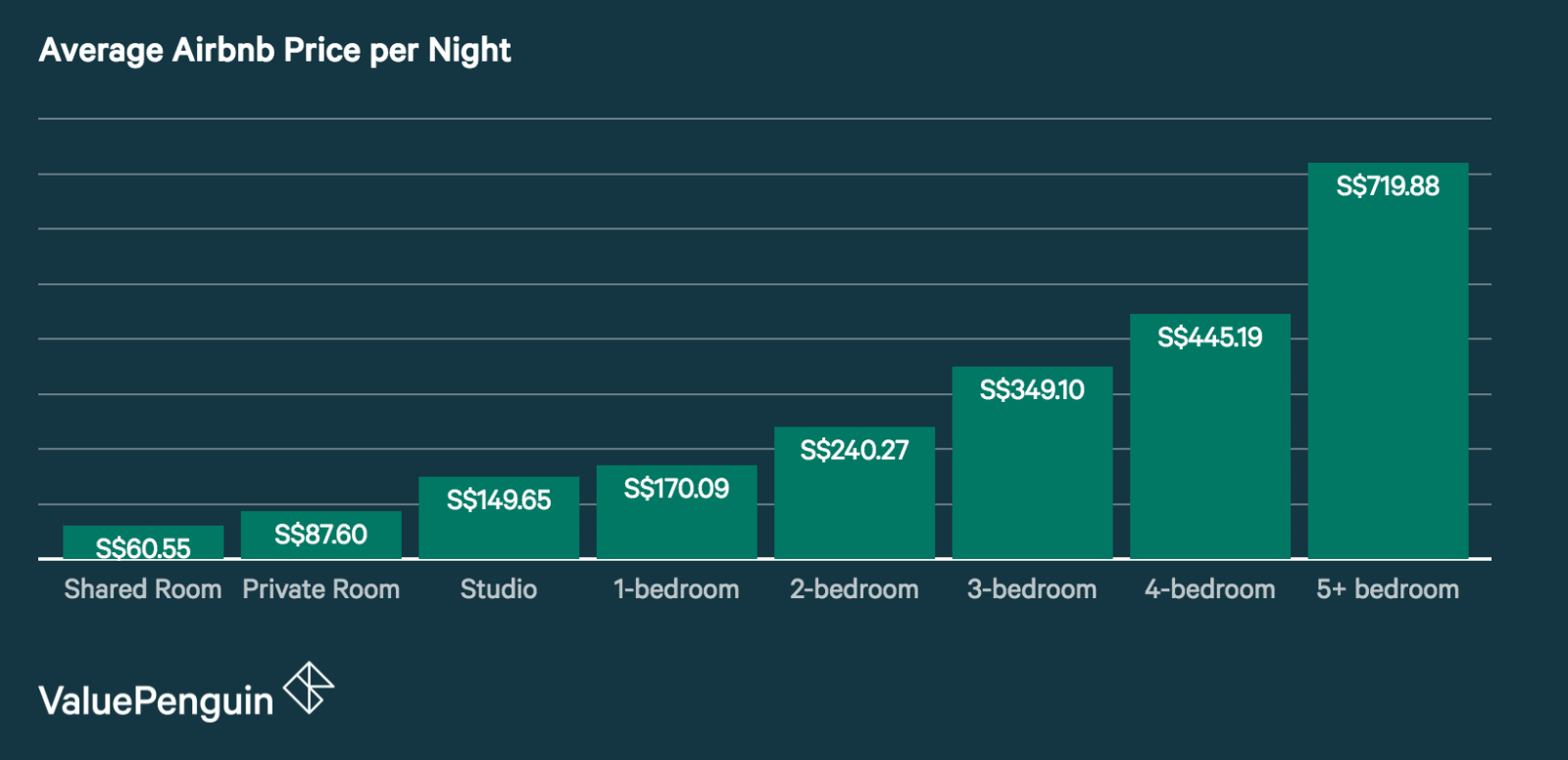What would it be like if Airbnb was legalised in Singapore?

A recent proposal by the Urban Redevelopment Authority (URA) would allow homeowners to rent out their homes for a maximum of 90 days per year. If passed, this would be a great way for Singaporean's with an extra room or home to legally earn some extra cash. While it is still considered to be illegal to rent one's residence through Airbnb in Singapore, we explore what this new rule could mean for prospective hosts.
How Much Could Hosts Earn?
If approved, the new rule could open up a very lucrative source of additional income to homeowners. 2017 data of nearly 7,000 unsanctioned Airbnb rentals in Singapore indicates that the average home rental was priced at S$228 per night. Based on this figure, a simple estimation suggests that an average homeowner would be able to earn upwards of S$20,000 in a year by renting their home, if the rule were to be approved. Furthermore, homeowners with large homes could earn even more, as these homes are typically priced higher.

Potential Headaches for Homeowners
While the possibility of boosting one's income can be quite enticing, it is important to consider the drawbacks associated with operating a rental property. First, it is important to factor in the cost and hassle of cleaning a home between visits. Some homeowners may find it necessary to hire a cleaning service, which would be an additional financial burden. The same goes for maintenance, as homeowners may have an increased need for home repairs if their property is damaged or for renovations to make their listing more appealing to visitors. That being said, Airbnb provides host protection insurance that is quite comprehensive and similar to the best home insurance policies available in Singapore. Finally, if the rule is approved, it will be necessary to factor in costs from any taxes or fees levied by the government on rental income.
Logistics are another important factor to consider. Individuals renting their homes through Airbnb are expected to communicate promptly and regularly with guests in order to facilitate seamless stays. Hosts with one residence will also need to prepare for the logistical issues of planning their own lodging while they are renting to guests.
What if AirBnb Were to Be Completely Legalised?
Theoretically, if Airbnb were to be completely legalised in Singapore it would be a major opportunity for hosts to earn extra income. Assuming that legislation would allow hosts to boost occupancy rates seen in cities where Airbnb is legal, including Tokyo and Seoul, Singaporean hosts would be able to boost their earnings even further. A simple calculation of applying the 75 per cent occupancy rate to average daily rates of S$149.65 to S$719.88 suggests that hosts could earn as much as S$40,966 to S$197,067 per year if Airbnb were to be completely legalised.

Such an opportunity could also encourage entrepreneurs to own several homes to operate as a professional home rental company, a trend that was observed in cities where Airbnb has had a stronger footing. Hosts with several properties to rent may even want to consider registering as an incorporated business.
First, that would allow these hosts to deduct expenses related to operating, cleaning and maintaining the properties to reduce their income taxes. It may also qualify the host for business loans, which could be very helpful for large expenses related to the properties.
Even property owners that rent to the long-term tenants could benefit from full legalisation. A recent study found that Airbnb caused a 1.4 per cent increase in the median rent of apartments in New York City. While this would benefit homeowners, it would negatively impact renters as their cost of living would rise.
This article was first published in ValuePenguin.